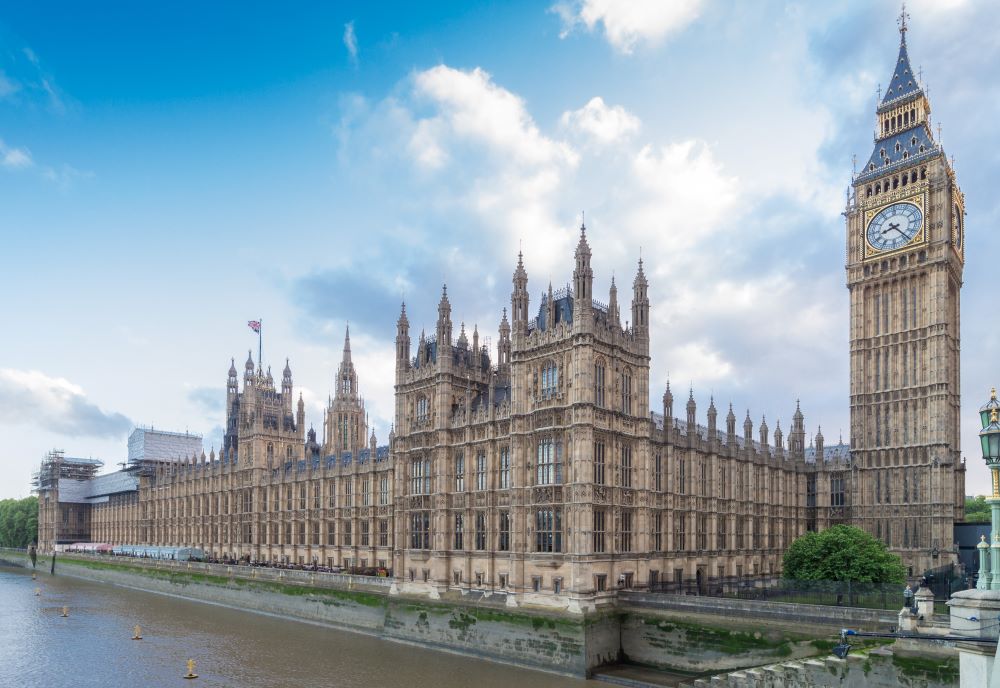
As Parliament heads into its summer recess, the last seven months has seen a number of significant developments for trade policy and legislation.
The Institute of Export & International Trade’s (IOE&IT) public affairs team looks back at the busy half-year for international trade, as well as what we might expect from the second part of the year.
Looking back
Windsor Framework
The Windsor Framework, agreed to between UK prime minister Rishi Sunak and European Commission (EC) president Ursula von der Leyen in February, has faced Parliamentary scrutiny since it was first unveiled.
MPs initially voted to approve the ‘Stormont Brake’ aspect of the deal by 515 votes to 29 in March 2023.
The brake will allow politicians in the Northern Irish Assembly to object to EU laws that could otherwise be introduced in the region, as the area is still subject to EU single market rules under the terms of the Northern Ireland Protocol.
The UK government has used the framework to seek an improved relationship with the EU following Brexit and to resolve difficulties in trade flows with Northern Ireland.
The framework also included the introduction of ‘green’ and ‘red’ lanes for British-to-Northern Ireland trade, with goods traveling only to Northern Ireland using the green lane and enjoying reduced customs checks.
The full ‘green lane’ should take effect from September 2024 and new arrangements for the supply of medicines into Northern Ireland will take effect in 2025.
The framework has been a core focus of the sub-committee on the Protocol on Ireland/Northern Ireland on a regular basis. The committee has taken evidence from industry and policy experts, as well as calling for clarity on aspects of the agreement.
ETDA
The Electronic Trade Documents Act (ETDA) received royal assent last week, after being introduced in the House of Lords in October 2022.
Liberal Democrat peer, Lord Clement-Jones, hailed the legislation as “the biggest change to trade documents since the Venetians ruled the waves”. The hope from politicians of all parties is that the new legislation will make international trade cheaper, more sustainable and more efficient by removing reliance on old-fashioned paper.
At the moment, it can take several days to transfer documents, such as bills of lading and insurance certificates, from one party to another. The digitisation of these documents is hoped to reduce this time significantly.
Another aspect of the ETDA is the environmental impact it is hoped to have. Throughout its journey through Parliament, the act’s environmental advantages have been constantly promoted by both government and opposition politicians.
The World Economic Forum found that trade digitisation could “reduce global carbon dioxide emissions from logistics by as much as 12%”.
The passing of the bill is a step forward for international traders, but it is not the final one, as major shifts often bring major challenges. In the future, the ETDA will need to be adapted for new challenges, such as cybersecurity and data privacy.
Interoperability between worldwide systems looks like it could be the next frontier for the progression of electronic trade documents.
Looking Ahead
The King’s Speech
The government has announced that the state opening of Parliament - centred around the King’s Speech, where His Majesty Charles III will read out planned legislative bills from government - will take place on 7 November.
There is a lot of speculation about what might be included in this legislative programme, whether that be calls for an Employment Bill or for measures to be taken on leasehold reforms. While there is no clarity on specifics as of yet, it is important that this will mark the last legislative programme from the government ahead of the next general election, which is widely expected to take place next year.
Carry over
Some bills, however, will still be carried over from the previous parliamentary session.
For example, the Levelling-Up and Regeneration Bill, which includes measures such as the imposition of an infrastructure levy and delivering on the government’s levelling-up agenda, has not yet completed its legislative journey, so will be picked up again in early September.
Another interesting piece of legislation to keep an eye on next year will be the Digital Markets, Competition and Consumers Bill which will aim to provide for the regulation of competition in digital markets as the government believes that existing competition and consumer laws are not designed to address the unique barriers to competition in digital markets.
Incoming legislation
There are a number of trade measures which are also expected to come into force in the autumn. Following the ETDA receiving royal assent, the measures contained within that bill will come into force around 21 September.
The measures in the Border Target Operating Model, which proposes a new approach to security controls and sanitary and phytosanitary controls at the border, are also due to be progressively introduced from the end of October 2023.
Keep your eyes peeled for our continuing analysis and expert advice as these measures come into force.
